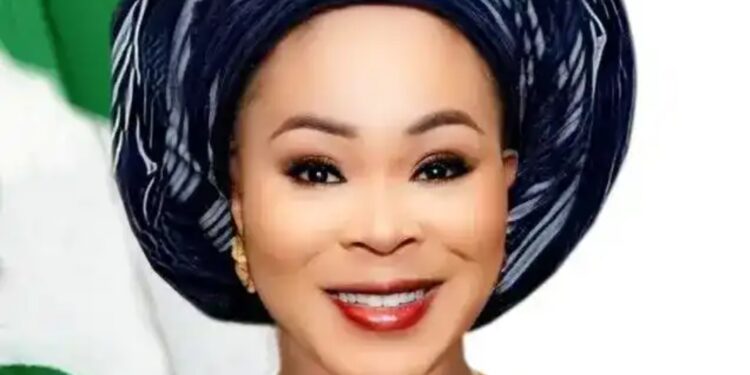Shalom A. Oludele
The minister of Women Affairs, Mrs Uju Kennedy-Ohanenye, has said that the plan of Abdulmalik Sarkindaji, Speaker of the Niger State Assembly to marry out 100 orphaned girls as part of his constituency project, is unacceptable
Mrs Kennedy-Ohanenye has petitioned the Inspector General of Police (IGP) and sought for a court injunction to stop Sarkindaji carrying out his plan.
The speaker had recently announced that as part of his constituency project, on May 24, he would marry off 100 orphaned girls who lost their parents to banditry attacks in Mariga local government area of Niger State.
He said that the gesture is “aimed at alleviating the suffering of the impoverished”, pledging to pay the dowries for the bridegrooms and cater for materials needed for the mass marriage.
Kennedy-Ohanenye, while briefing newsmen in Abuja described the plans as “unacceptable” emphasising that a full-scale investigation has commenced on the issue.
“I want to let the honorable speaker of house in Niger states to know that this is totally unacceptable by Federal Minister of Women Affairs and by the government.
“Because there is something called the Child’s Right Act and I said it from the onset, that it’s s no more business as usual.
“These children must be considered, their future must be considered, the future of the children to come out of their marriage must be considered.
“So I have gone to court. I have written him a letter and written a petition to the IG of police.
”And I have filed for injunction to stop him from whatever he is planning to do on the 24th, until a thorough investigation is carried out on those girls, find out whether they gave their consent, their ages, find out the people marrying them,” she said.
She further said: “As the speaker did not think about empowering these women or sending them to school or giving them some kind of training support financially, the Women Affairs have decided to take it up and we are going to educate the children.
“Those that do not want to go to school, we will train them in a skill, empower them with sustainable empowerment machines to enable that child build his or her life and make-up her mind who and when to get married.
”If for any reason the Speaker tries to do contrary to what I have just mentioned there will be a serious legal battle between him and the Federal Ministry of Women Affairs,”she said.
The minister emphasized that in line with the Child Rights Act, every child belongs to the state, therefore, the rights of every child must be protected.










